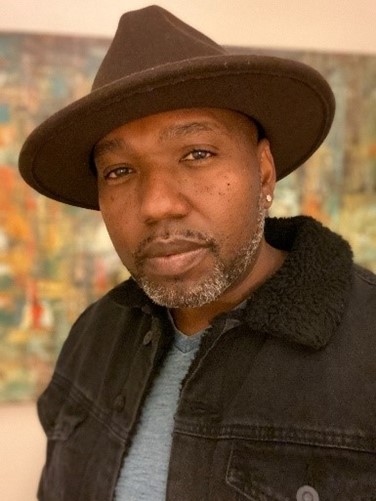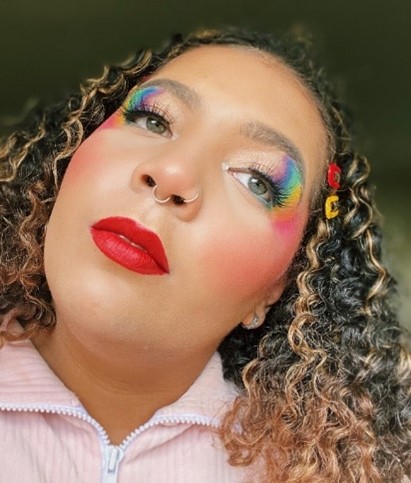BDO Celebrates African American Art and Artists During Black History Month
Black History Month is a time for celebrating the significant contributions made by Black Americans throughout history and for addressing the challenges still faced by the community today. The 2024 national theme, African Americans and the Arts, devotes special focus to African Americans’ influence on American culture by highlighting their contributions to literature, fashion, film, music and other art forms.
This year, BDO’s Multicultural Alliance is encouraging conversations about culture and creativity with a series of local and national events, including fundraisers for nonprofits empowering Black creatives and an educational firmwide webinar on the subject of Afrofuturism.
To accompany these dedicated efforts, we invited BDO professionals to reflect on the theme, share what art means to them, and highlight the different artists or movements that inspired their own creative processes.

How did you get started with music?
My earliest experience with music started in the church. I’m of Geechee Gullah descent, where singing in groups is a significant part of the culture, and things were no different at the church. I played piano accompaniments and sang with the choir. I also joined the California State Honor Choir for several years during high school, touring and performing at events like the World Heritage Pageant in Honolulu.
When I started out as a hip-hop artist, the genre was in its golden age. Most influential artists at the time were based in New York, but many visited California while they were on tour. I had the privilege of seeing big names come to my hometown of Stockton and throughout northern California. I was even able to work with some of those touring artists later in my career.
How would you describe your creative process?
When I was first starting out, hip hop was strictly two turntables and a microphone. I grew up in one of the most diverse cities in America, which gave me exposure to all kinds of art forms from different cultures. That inspired me to break away from the molds the genre had at the time. People would be skeptical, unsure whether my music could be considered hip hop if I added piano or singing components. Now, though, you can see hip hop has grown and evolved a lot over time.
There’s no formula to making music for me. When I trust my soul, directed by God, and follow what feels right, I feel more connected to my audience.
What kinds of themes does your music have? Are certain messages you want to communicate to others?
Storytelling is a big focus for me. I sing and rap about a variety of experiences: love, my honest experiences as an African American man, community enrichment and finding a sense of self and belonging. My single Won't Hurt You, for example, centers around a complex dynamic in a relationship. One person aims to protect the other, but in doing so, makes that person feel as if they are a burden to the other. I make music with the intention of bringing out raw emotion and encouraging deep reflection in my listeners.
Representation and diversity are important in creative industries. How do you hope to personally contribute?
I’ve taken inspiration from so many different artists and genres in my music. Not only do I hope my listeners understand how diversity has shaped my music and character for the better, but I hope my music inspires them to seek variety in their own lives. For me, listening to an artist who’s open to exploring multiple styles offers a spectrum of emotions, memories and experiences. This is the impact I hope my music will have on others.
How has being an artist helped you with your work at BDO?
The problems I was solving in music weren’t just creative ones — I was constantly soldering, fixing wires and troubleshooting repairs for my equipment. When I was interviewing for National IT’s Service Desk, I was asked to explain how to fix one of their printers. I had no idea how to and offered an explanation that made no sense in the IT world. However, I was recognized for my creativity and ability to reason, and that’s how I was able to stand out as a candidate.
I just celebrated my 13th anniversary at the firm, and I still find creative thinking invaluable when it comes to solving problems at work.
 |  |  |

What is your creative outlet?
There are several outlets. I’m really into photography and photo manipulation. I like to play around with the image, edit some objects or distort the perspective. I even integrate some of those visuals into my drawings because it is thought provoking.
I also love makeup because the face is a canvas. I can express myself, whether it’s showing off rainbow blush or a 3-D spider. But conventional makeup is also art. I can appreciate the subtleties and techniques used to amplify certain features on the face.
How do you hope your art can contribute to the representation and visibility of African American artists?
I usually have something to say in my art. I hope it connects with others and starts compelling conversations. As a creator, I appreciate people who look at my work. It’s gratifying when someone stops to see what you have to say or do. When someone compliments my makeup work, that moment of happiness makes a deep impression.
Oftentimes, especially as African American artists, we are persuaded to compromise more than we should. For example, I might be told my art is too loud and to tone it down to appease others. However, I’m starting to decipher what is constructive feedback and what isn’t. There are times when people are offering valid critiques because they want me to succeed. I’ve learned to put my pride to the side in certain situations, which has allowed me to grow as an artist and open myself up to new techniques.
Are there any specific African American artists, eras or experiences that have inspired or influenced your artistic journey? If so, how have they influenced your art and the messages you convey through your work?
I love 90s culture, with its hairstyles, big gold earrings and jewelry on the fingers. The Harlem Renaissance was also an empowering time. That period put Black art in focus, leading to raising visibility for African American artists who got the recognition for their art. It has made a lasting impact on me as an African American artist.
Art was particularly important for me in 2020. On top of the pandemic, there were protests against social injustice. I saw it as an opportunity to collaborate with other Black artists via social media to amplify the major takeaways from this movement. There were so many feelings because it was such an emotional time. Having art as an outlet was not only therapeutic but also productive because I got to be part of that push toward equality. It was a chance for Black artists to be heard, seen and taken more seriously. It’s an ongoing journey, but I’m proud to be a part of it.
How did your upbringing and life experiences influence your artistic style and subject matter?
As an African American woman in Indiana, seeing another person who looks like me provides a sense of comfort and community. Throughout my life, I've noticed we tend to gravitate toward each other. I want to represent myself, my community and other African American artists in the work I do. That’s carried over into my creative services career. I’m determined to perform well in my job, but I also want my work to be as inclusive as possible.
I’m not afraid to take inspiration from other artists of color. When I draw, I take inspiration from anime since I grew up watching “Yu-Gi-Oh” on Saturday mornings. I’m also interested in clothing from Middle Eastern weddings, where the wedding party wears colorful garments. There are so many amazing LGBTQ+ artists who create powerful work that I also resonate with. Looking at other sources of art taught me to be more open to different perspectives while maintaining my own identity.
 |  |  |
 |  |
SHARE